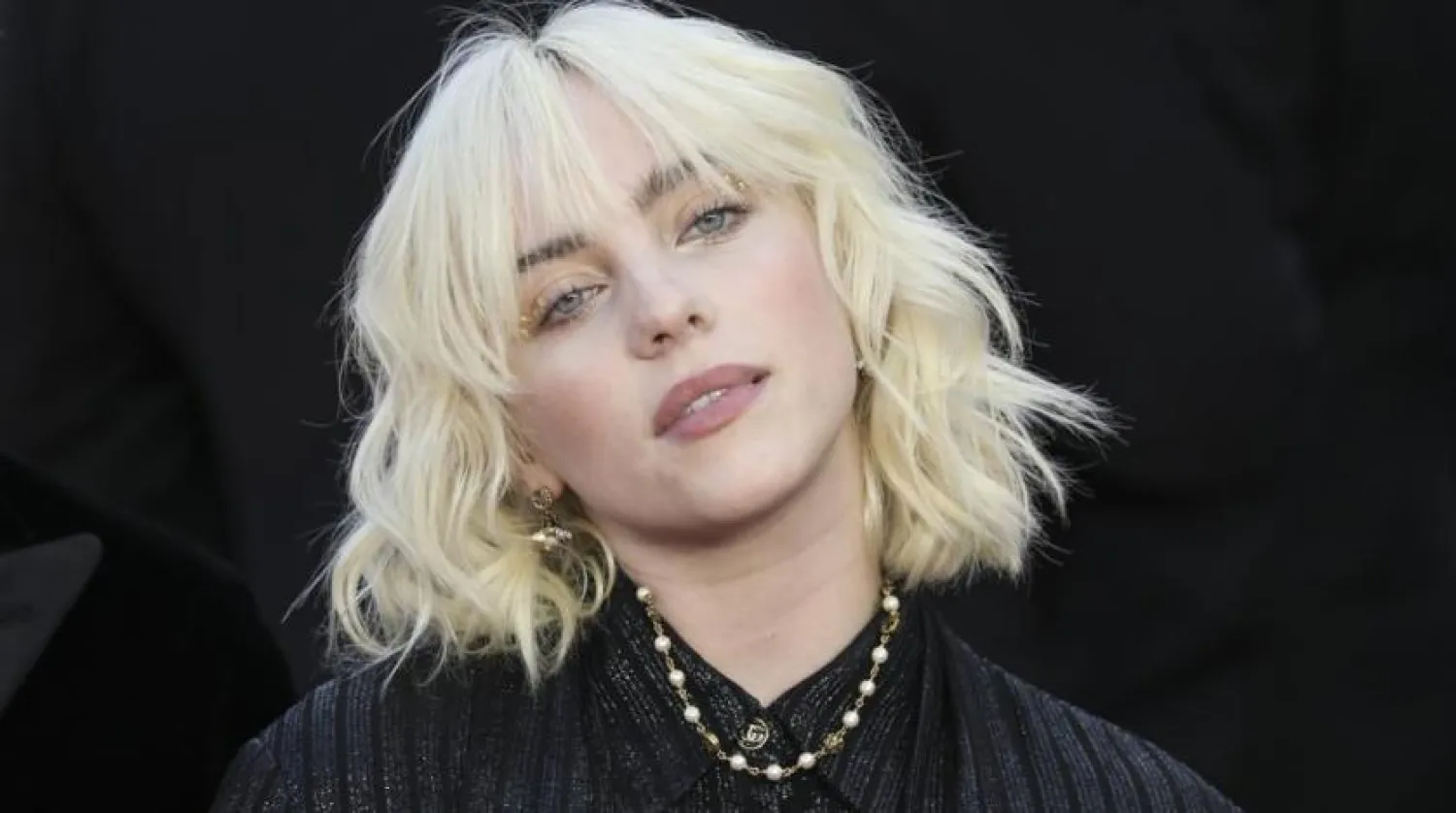Several Grammy Awards performers such as Billie Eilish, Olivia Rodrigo and Jon Batiste have a chance to carve their names in the show's history books Sunday.
Through her song “Happier Than Ever,” Eilish could become the first artist ever to win record of the year three times in a row, and the only artist along with Paul Simon to take home the award three times. She’s in position to join Adele as the only artists to ever win three major categories — record, song and album of the year — twice. She previously won for “Bad Guy” and “Everything I Wanted.”
Trevor Noah returns for a second time as Grammys host. The ceremony shifted from Los Angeles to Las Vegas because of rising COVID-19 cases and the omicron variant in January, with organizers citing “too many risks” to hosting the performance-filled show at the time. It airs live beginning at 8 p.m. EDT on CBS and Paramount+, The Associated Press said.
If Eilish wins in all her seven nominated categories, she’ll be the woman with the most Grammys won in a single year (H.E.R., Doja Cat and Rodrigo could do the same).
But that might be a tough feat with Eilish facing some stiff competition for the show’s top prize — album of the year — which was expanded to 10 nominees.
Eilish is up for best music film with her concert documentary “Happier Than Ever: A Love Letter to Los Angeles.” But in that same category includes Ahmir “Questlove” Thompson’s “Summer of Soul,” which recently won an Oscar for best documentary.
Even if Eilish comes away with six wins, she’ll be tied with Beyoncé and Adele — which is not bad company to be in.
Rodrigo has an opportunity to join Eilish and Christopher Cross as the only artists to win all four major categories (best new artist, album, record and song of the year).
The 19-year-old “drivers license” singer could be following Eilish’s remarkable record by becoming the second-youngest album of the year winner with “Sour.”
The only person who could win the most Grammys in one night is Jon Batiste, who enters the awards with a leading 11 nominations. If Batiste wins in eight categories, he will tie Michael Jackson and rock band Santana for the record.
Batiste, a multi-genre performer and Oscar winner, might have a hard time pulling that off with the competition in record and album of the year categories. He could pull away in the jazz, American roots music and classical fields.
H.E.R., who won song of the year last year for “I Can’t Breathe,” could go back-to-back. She’s nominated this year for the soulful “Fight for You,” whose poignant lyrics from the “Judas and the Black Messiah” soundtrack were written by H.E.R., producer D’Mile and singer Tiara Thomas. It won an Academy Award for best original song last year.
The awards will be without several big names: Drake and The Weeknd both decided to not take part in the Grammys, at all. Ye, who changed his name from Kanye West, said he was told that his act was pulled from the show.
It might be a bittersweet moment for the Foo Fighters following the recent death of its drummer Taylor Hawkins. The rock band could extend their record for most best rock album wins with five for “Medicine at Midnight.”
Cardi B and Megan Thee Stallion will battle to see who becomes the first woman to win best rap performance as a solo artist. Stallion, who won the award with Beyoncé last year, is nominated for her song “Thot S(asterisk)(asterisk)(asterisk),” while Cardi B is up for her crossover hit “Up.”
Mickey Guyton was the first Black woman to be nominated in best country solo performance last year, and now she’s back in the category again. If she wins, she would be the first Black woman to get that award.
In rap, Jay-Z could extend his record as the most awarded rapper of all time with 23 wins. He’s up for three nomination — two in the best rap song category for his songwriting on DMX’S “Bath Salts” and Kanye West’s “Jail.” He’s also up for album of the year for his guest appearance on West’s “Donda.”
A healthy dose of performers will hit the stage at the MGM Grand Garden Arena in Las Vegas, including Silk Sonic, H.E.R., Chris Stapleton, Cynthia Erivo, Jack Harlow, Nas, Leslie Odom Jr. and Brothers Osborne.
Artists competing with Eilish for album of the year include Rodrigo, Jon Batiste, Tony Bennett and Lady Gaga, Justin Bieber, Doja Cat, H.E.R., Taylor Swift, Lil Nas X and Kanye West.
On the production side, Serban Ghenea could tie Al Schmitt as the engineer-mixer with the most Grammys won with 20. He’s won a total 18 trophies in his career and enters the awards with five nominations for his work on Doja Cat’s “Planet Her” and Lil Nas X’s “Montero.” Ghenea also could extend his record as the engineer-mixer with the most album of the year wins at five.
Although 80-plus awards will be handed out — roughly 10 during the live telecast and the rest during the pre-ceremony — viewers are most likely watching for the performances.









